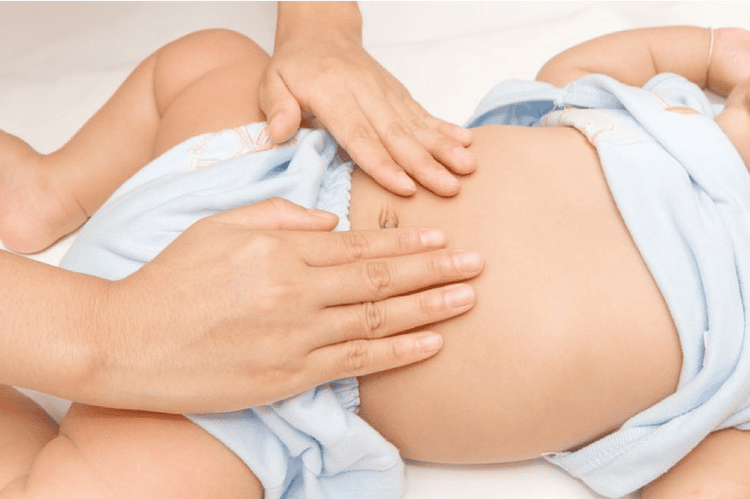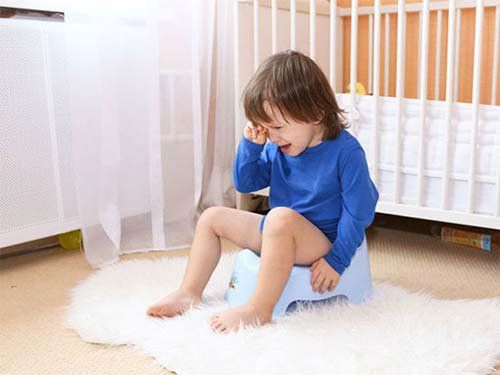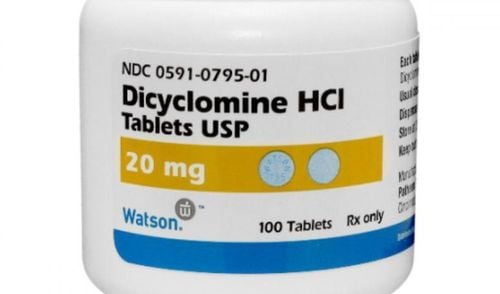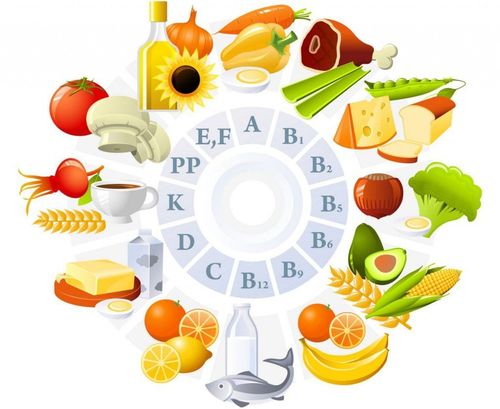This is an automatically translated article.
The article was professionally consulted by Doctor Pham Lan Huong - Pediatrician - Pediatric Center - Vinmec Times City International HospitalDigestive disorders are common conditions in all ages, most commonly in children. Children with digestive disorders can lead to malabsorption, causing children to lack micronutrients, eat a lot but not fat.
1. What is a child's digestive disorder?
The digestive tract consists of many parts, it starts at the mouth and ends at the anus. These organs work like a "factory" in the body, helping us get energy and nutrients from food and drink. When one of these parts has an abnormal problem causing symptoms of abdominal pain, indigestion, nausea, constipation, diarrhea, etc., it is a sign of digestive disorders.
Digestive disorders is a condition in which the sphincter in the digestive system is abnormally spasms, causing abdominal pain and changes in the digestion of food.
Children with digestive disorders can have a negative impact on the child's development later, because at this stage the child's body needs an adequate and stable source of nutrition. When there is a digestive disorder, the amount of nutrients provided to the child's body is significantly deficient. The consequences are malabsorption in children, leading to malnutrition, retardation of both physical and mental development, and impaired immune system. Later, children are prone to relapse of digestive disorders when there are agents from the environment that attack the digestive system.
2. Causes of digestive disorders in children
According to data from the National Institute of Nutrition, up to 47% of children have digestive disorders in the total number of children who come to the doctor. According to statistics at the Hanoi National Children's Hospital, this rate is up to 59% in children under 12 months old and up to 40% in children aged 1-2 years. Children have digestive disorders caused by many different causes, including:
2.1 Intestinal dysbacteriosis Up to 80% of the body's resistance is born from the intestinal tract. Normally, the intestinal microflora always reaches an equilibrium with 85% good bacteria and 15% harmful bacteria.
When the intestinal microflora is balanced and healthy, it can create a good protective barrier for the body. When it is out of balance, the resistance decreases, the child is easily attacked by pathogenic bacteria, causing digestive disorder symptoms. At the same time, children from 0-6 years old have weak resistance and the digestive system has not fully developed, so they are easily attacked by pathogens such as bacteria, viruses, fungi, and parasites.
2.2 Micronutrient deficiency in children Long-term micronutrient deficiency in children reduces the secretion of digestive enzymes, causing food to not be broken down and retained for a long time in the intestinal tract, causing digestive disorders .
As a result, the ability to absorb nutrients and minerals is poor, making the micronutrient deficiency in children more serious. Thereby making the overall health decrease, the child's development ability is not normal.
2.3 Use of antibiotics Children often have digestive disorders after using antibiotics for a course or for a long time. Antibiotics upset the balance of the intestinal microflora, harming the beneficial bacteria. Thereby causing digestive disorders with symptoms such as: Diarrhea, raw stool or constipation.
2.4 Improper nutrition In some cases, it is because the mother gives the baby solid foods too early, or chooses indigestible foods, greasy dishes or the meal lasts too long. It is these things that cause children to have bloating, indigestion, diarrhea,...
2.5 Food poisoning Using unhygienic food, stale food, unhygienic processing, sources Unsafe water and food preservation can cause digestive disorders in children, worse, food poisoning, causing the phenomenon of "vomiting in the mouth".
2.6 Unsanitary living environment Living environment including houses, toys that are not cleaned regularly, before eating or after going to the toilet, do not wash hands,... will create conditions for bacteria. invasive, causing digestive disorders.
2.7 Pathology Some diseases of the digestive system such as gastritis, enteritis also cause digestive disorders in children. In addition, in some diseases such as respiratory tract infections, bronchitis, pneumonia, ... children can swallow sputum containing bacteria leading to intestinal infections causing digestive disorders.

Trẻ rối loạn tiêu hóa có thể do nhiều nguyên nhân như thiếu vi chất dinh dưỡng, sử dụng thuốc kháng sinh,...
3. What are the symptoms of children with digestive disorders?
Children with digestive disorders have many different manifestations depending on the cause and each child. Here are the common symptoms when children have digestive disorders:
3.1 Vomiting This is a common condition in young children when the child's digestive tract is not yet complete, it can go away on its own when the child grows up. If vomiting occurs frequently, it is necessary to take the child to the doctor to find a solution.
3.2 Constipation Constipation Constipation is a condition in which a child goes to the toilet every 2-3 days, his stomach is hard, he feels pain when he goes to the toilet,... The reason is that the child eats foods that are difficult to digest such as food. hard, containing too much fat, or indigestible proteins,...
Constipation makes it easy for children to skip meals, anorexia in children makes the body not absorb enough necessary nutrients and minerals, lead to malnutrition, rickets, growth retardation.
3.3 Raw faeces The cause of raw faeces is an imbalance between good bacteria and bad bacteria in the intestines. Normally, the intestinal microflora has a ratio of 85% good bacteria and 15% harmful bacteria, helping the process of digestion, absorption of nutrients and elimination of toxic substances take place normally.
3.4 Diarrhea Diarrhea is the passage of loose, loose or watery stools, many times a day. Diarrhea makes children anorexia, malabsorption.
Especially dangerous is that children are very susceptible to dehydration and electrolyte loss, which can lead to death if not handled promptly.
3.5 Abdominal pain, indigestion When having digestive disorders, children may have abdominal pain, indigestion with the expression of crying a lot, red or pale face, clenched fists.

Trẻ rối loạn tiêu hóa sẽ có các biểu hiện như đau bụng, khó tiêu, quấy khóc, nôn trớ,..
4. Are children with digestive disorders dangerous?
Prolonged diarrhea or constipation in children can lead to some diseases of the anus and rectum. The biggest risk that can be encountered is hemorrhoids. Digestive system decline leads to difficulty in absorbing nutrients of children. Causing a great impact on children's health, leading to exhaustion, fatigue, loss of appetite, ... When the intestinal microflora of children is out of balance for a long time, it will increase the risk of diseases Other reasons such as: enteritis, colitis,... For young children, digestive disorders will greatly affect their physical development. Children with digestive disorders are often prone to diseases such as rickets, malnutrition, immunodeficiency, growth retardation, etc. Therefore, although digestive disorders are not a dangerous disease, the recognition Early recognition and treatment of this condition is essential. Therefore, when you see that your child has abnormal symptoms, you should take your child to a medical facility for timely examination and treatment.
5. How to prevent digestive disorders in children?
Digestive disorders are a condition that we can prevent for children with the following measures:
5.1 Building a suitable diet You should make sure to choose foods suitable for the child's age, always feed children clean, nutritious food and ensure food safety and hygiene. In particular, it is necessary to add foods rich in fiber such as fruits and vegetables, whole grains, and limit foods that contain a lot of fat.
Besides, you should also encourage your child to drink lots of water. Providing a sufficient amount of water each day for the body can help dilute food, easy to move in the intestinal tract.
5.2 Practice scientific eating habits When feeding children, you should remind them to chew food carefully. Chewing thoroughly helps to break down food into small pieces and mix them with enzymes found in saliva. This makes the child feel good and the child's body easier to digest the food.
5.3 Physical exercise every day You need to create a habit for children to exercise and move daily because this helps them eat better, their digestive system works better. However, children should not exercise vigorously right after eating.
5.4 Avoid causing stress and pressure for children Being stressed will make children lose their appetite, inhibition will reduce digestive enzyme secretion. In addition, you also need to pay attention to supplementing with micronutrients and fiber to help your child's digestive system work better, improve and prevent gastrointestinal disorders effectively.
To prevent diseases that babies often get, parents should pay attention to nutrition to improve children's resistance. At the same time, add supporting foods containing lysine, essential micro-minerals and vitamins such as zinc, chromium, selenium, B vitamins,... snacks and less digestive problems.
Parents can learn more:
Why do you need to supplement Lysine for your baby?
The role of zinc - Guidelines for reasonable zinc supplementation
Please visit the website Vinmec.com regularly and update useful information to take care of your baby and family.
Reference sources: Nutrihome.vn, nestlehealthscience.vn














